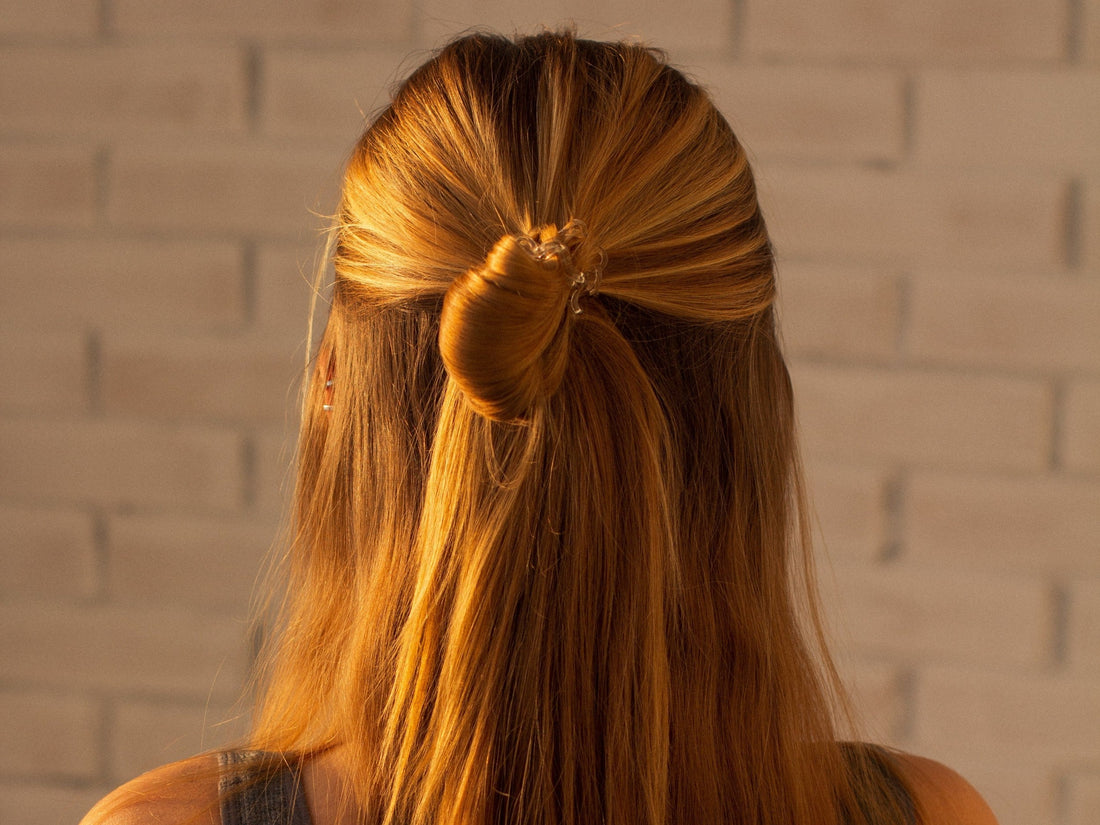
How To Moisturize Your Scalp Without Making Your Hair Look Greasy
Share
You know how it goes. Your hair and scalp feel dry so you use conditioner in the shower and apply oils after your shower. Then, when your hair dries…it’s greasy.
We’ve all been there. Haircare is a tricky science, and our hair is always quick to tell us when we’ve taken a misstep. Still, moisturizing the hair and scalp is essential, especially when they’re weak or damaged from dryness.
How can you do it without making your hair greasy? Let’s discuss.
Why Scalp Care Matters For Healthy Hair
Hair health can be frustratingly volatile. One product, treatment, or day in the sun can have a massive impact on how it looks for days to come.
It seems that we’re always fighting between two extremes: an oily scalp and a dry one. If you experience a constant greasiness on your scalp, you could have seborrhea, a common skin condition where the hair follicles overproduce sebum. On the other hand, if you have constant dryness on your scalp, it’s imperative to restore moisture to both the hair strands and the skin. Doing that without making your hair greasy can be complicated.
So many factors impact how our hair responds to oils and conditioning agents, including the thickness of the hair strands, texture, and curl pattern.
Thick, curly hair, for example, tends to be dryer and requires less washing. Meanwhile, thin, straight hair tends to be oilier and requires more frequent washes. Similarly, your hair care routine can have a big impact on how greasy your scalp is. In fact, everything from the products you use to the temperature of your shower to the amount of water you drink can impact hair health. Navigating all these factors can be a tricky business, but you can achieve the hair of your dreams with some experimentation and expert advice. Read on.
Tips for Moisturizing Your Scalp Without the Grease
Let’s talk about how you can bring moisture to your scalp without feeling like an oily mess.
Skip The Sulfates
Sulfates are found in many shampoos, especially traditional drug store products. While an effective cleanser for clearing away oil and build-up, they’re often too effective. It’s quite common for scalps to overcompensate, producing more sebum and flooding the scalp with oil.
That’s why Jupiter’s Balancing Shampoo, and all of our products, is completely sulfate-free. To that end, some people are moving towards washing their hair less often to ‘train’ the sebaceous glands to produce less oil. The frequency one should wash their hair changes for everyone depending on hair type. Finding what works through simple trial and error should provide valuable insight about your scalp's needs.
Choose The Right Conditioner
The hair closest to your scalp is the hair that will most benefit from your natural oil production. If you tend to notice greasiness closer to your roots first, focus on applying Jupiter’s Nourishing Conditioner to your ends, where your hair may be receiving less of the natural oils produced by your scalp.
While most traditional conditioners consist of fatty alcohols, humectants, and oils to help strengthen the bonds of your hair after they’ve been cleansed, our Nourishing Conditioner has been specially formulated with the skin of your scalp in mind and should be used from root to tip.
It not only hydrates the hair, but also soothes and smoothes your scalp as well with key ingredients like probiotics and colloidal oatmeal. You can safely condition from root to tip - without the greasy residue.
Be Gentle on Your Scalp
Outside of the shower, there are several changes you can make. When it comes to drying your hair, using a microfiber towel or t-shirt rather than standard bath towels can help reduce frizz. Or, using a diffuser on cool air rather than a hot blow dryer can help protect your hair follicles, ensuring they don’t go on sebum-production overload.
Another great way to restore moisture to the scalp is a weekly deep conditioning treatment (we like to do it as part of our Sunday wind-down routine). Deep conditioners go one step further than standard conditioners, repairing damaged bonds and hydrating hair. After thoroughly rinsing your hair, a deep conditioner shouldn’t leave your hair and scalp greasy. Instead, you’ll feel a buoyancy and vibrance in your hair for several days.
Opt For A Medicated Leave-On Product
If you’re struggling with oil production on your scalp, our Restoring Serum is an effective and convenient way to control build up and keep your scalp balanced. Formulated with Zinc Pyrithione, our serum will keep itching, flaking, and oil production at bay between washes.
Drink Water, Seriously
Don’t forget to drink lots of water. Staying hydrated is an important part of keeping our bodies healthy and skin well…hydrated. Be sure to drink the recommended amount of water each day. Guzzling the H2O can help bring moisture to your scalp, creating an optimal environment for a healthy head of hair, and keeping your scalp moisturized without looking greasy.
Hydrate Your Hair With Jupiter
Everyone’s hair is different, and everyone’s hair changes throughout their lifetime. Finding what works for you is challenging but well worth it once you do. At Jupiter, we’re here to help. Check out The "Whole Darn" Set to see what clean, cruelty-free products with the best natural ingredients can do for your hair and scalp.


